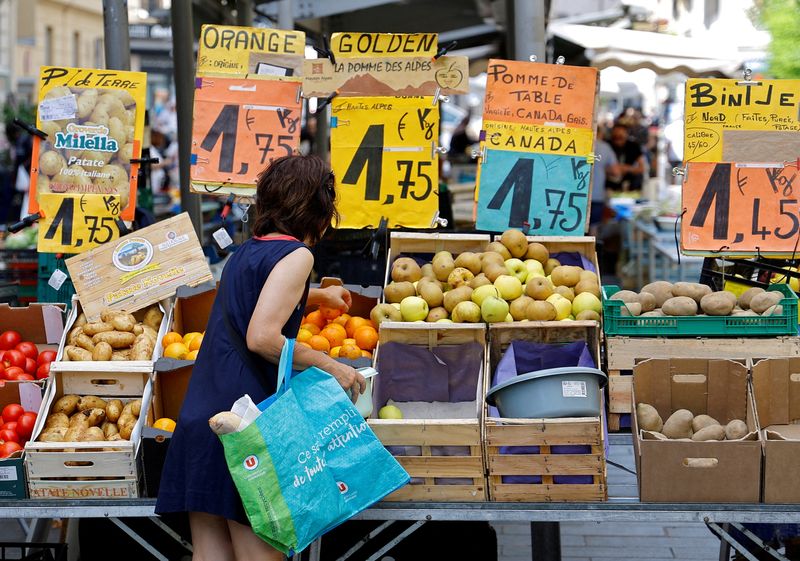(Reuters) - Pandemic-related disruptions to global supply chains and the effects of Russia's war in Ukraine have driven up prices of energy, commodities and necessities.
Here's how governments are trying to help hard-hit consumers and companies:
AMERICAS:
* Brazil's Senate approved raising the government spending cap, allowing the president-elect's incoming administration to fund an extension of social welfare payments for poor families. Oil giant Petrobras has cut fuel prices multiple times this year.
* Colombia will raise the minimum wage by 16% in 2023.
* Ecuador's president decreed a 6% minimum wage hike for next year.
* Argentina will raise the floor for income taxes in January. The government has agreed with major oil companies in the country to cap fuel price rises, and signed a deal with supermarkets and mass consumer goods suppliers to freeze or tightly regulate prices of some 1,500 products.
* The U.S. government in November announced measures to lower home energy bills. The administration unveiled the $430 billion Inflation Reduction Act in August.
* Mexico will raise the minimum wage by 20% next year.
* Canada is supporting low earners and offered students debt relief.
EUROPE:
* European Union nations' energy ministers agreed on a bloc-wide gas price cap. The cap can be triggered starting from Feb. 15, 2023, a document seen by Reuters showed.
* Germany's lower house of parliament passed legislation worth an estimated 100 billion euros ($106 billion) to cap power and gas bills for households and industry from January. The government has agreed to nationalise gas importers Uniper and Sefe.
* Hungary's government and private-sector employers have agreed on a 16% minimum wage increase for next year.
* Romania will hike state pensions by 12.5% from January.
* The Czech government approved capping electricity and natural gas prices for large companies at the same level as prices for households and small firms that are already in place.
* Portugal will limit the rise in the regulated price of electricity next year to 3.3% for around 1 million households and small businesses.
* Slovakia will cap energy prices for households next year.
* Spain's Cabinet has approved mortgage relief for more than 1 million vulnerable households.
* Italy plans to spend some 21 billion euros next year on energy costs relief.
* Britain unveiled a scaled-back version of an existing cap on energy bills and said it would raise pensions and welfare benefits in line with inflation.
* France is fully nationalising energy group EDF (EPA:EDF). The government will cap household power and gas price rises at 15% next year and is helping struggling small and mid-sized firms.
* Belarus banned consumer price rises from Oct. 6.
* Poland will cap electricity prices for small businesses, hospitals and households in 2023, and raise the minimum wage twice.
* Croatia has capped electricity prices until March.
ASIA-PACIFIC:
* India is set to offer 2 million to 3 million tonnes of wheat to bulk consumers such as flour millers and biscuit makers as part of efforts to cool record high prices. In September it restricted exports of rice to boost supply and calm local prices.
* The Philippines' president has approved the economic ministry's recommendation to extend lower tariff rates on rice and other food items up to the end of next year.
* Australia's parliament passed legislation setting a price cap on natural gas for one year and providing A$1.5 billion ($1.01 billion)in relief for households and small businesses.
* Japan will spend $200 billion on a package including electricity and gasoline bill subsidies.
* Thailand has agreed to extend an excise tax cut on diesel until Jan. 20.
* Indonesia's government in September ordered regional heads to keep food inflation below 5%.
AFRICA AND MIDDLE EAST:
* Egypt has formed a committee to set "fair prices" for 10 to 15 strategic and basic commodities. In October the government raised the public-sector minimum wage by 11%, and extended a freeze on residential electricity prices to June 2023.
* The head of Israel's parliamentary finance committee has submitted a bill that would limit banks' ability to raise mortgage rates after central bank rate hikes.
* Tunisia's government in September signed a deal with a major labour union to raise public-sector pay and the minimum wage.
* Turkey in July raised the minimum wage by about 30%, adding to the 50% rise seen at the end of last year.
* Botswana in July cut VAT by 2% for six months.
* Saudi Arabia and the United Arab Emirates in July raised social welfare spending.

($1 = 0.9432 euro)
($1 = 1.4888 Australian dollars)